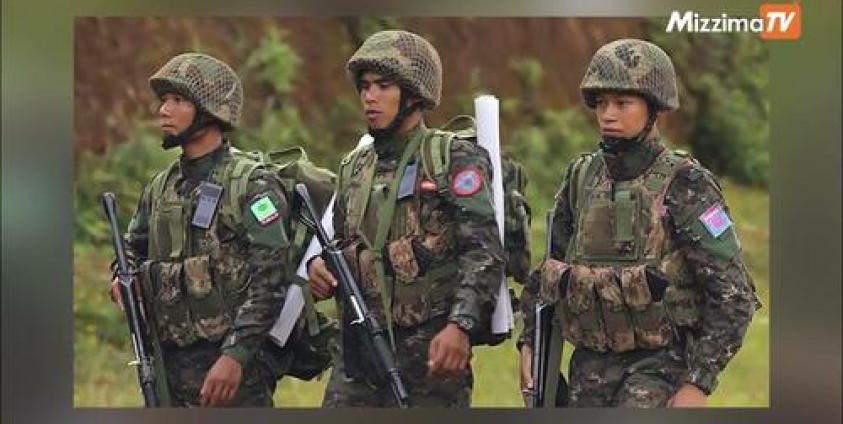The Chinese government reiterated its call for the prompt implementation of the agreements by the Military Council and the Three Brotherhood Alliance, facilitated through China's mediation.
Wang emphasized China's desire for tranquility in northern Myanmar and underscored the nation's active support in facilitating discussions among stakeholders to advance the peace process.
China's announcement of brokering a temporary ceasefire between the Military Council and ethnic armed organizations in northern Myanmar was countered by UN agencies reporting ongoing battles, leading to Wang's response. He provided this statement in response to reporters' questions regarding the continued conflicts between the Military Council and the Three Brotherhood Alliance, despite China's involvement.
On December 19th, during a routine press conference, China's Foreign Ministry Spokesperson Wang Wenbin announced that China had actively engaged in facilitating meetings and discussions among stakeholders concerning the peace process in northern Myanmar.
Wang further emphasized China's steadfast commitment to alleviating tensions among warring factions in Myanmar, advocating for the restraint of hostilities, and actively pushing for the tangible implementation of the agreements already reached.
The Chinese government announced that, on December 11th, the Military Council and the Three Brotherhood Alliance held a meeting in Kunming, Yunnan Province, yielding positive outcomes.
However there is much confusion over exactly what these agreements were and which members of the 3 Brotherhood Alliance had signed off on any agreement at the China-hosted forum .
The TNLA denied they had made any agreement with the Junta delegation.In reality, fighting has diminished only in areas under the control of the Myanmar National Democratic Alliance Army (MNDAA), a member of the three Brotherhood Alliance, while the Arakan Army (AA) and the Ta'ang National Liberation Army (TNLA) continue their operations at full strength.
Lieutenant Colonel Tar Aik Kyaw, spokesperson for TNLA, confirmed that discussions with Chinese authorities did take place, but clarified that they did not involve military matters.
Presently, MNDAA has strengthened its control over the entire Kokang region, excluding Laukkai, while TNLA exercises full authority over Namhsan and Namhkam towns, encompassing the strategically crucial Muse 105-Mile trade zone essential for border trade.
Meanwhile AA is engaging in collaborative operations with two allied ethnic armed organizations in northern Shan State and is actively pursuing the capture of Military Council strongholds in Rakhine State and Paletwa Township, Chin State, achieving notable success.
These circumstances have prompted questions regarding the effectiveness of the peace process in which China has intervened.The Junta has stated its intention to engage in further discussions with the Three Brotherhood Alliance at the conclusion of December.








